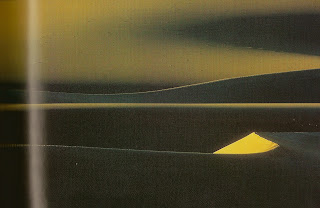(For the 23rd of February)
 |
White Desert, Egypt
Photograph by Philippe Bourseiller |
Air pollution is always more obvious in the middle of a traffic jam than when you are back at home. However, even indoors, you are not immune from harmful emissions, especially carbon monoxide. This gas is produced by incomplete combustion of coal, wood, gas, or fuel oil, which may be caused by a blocked flue, the use of old or badly maintained stoves, boilers or oil heaters, or clogged ventilation ducts that prevent air circulation. Carbon-monoxide poisoning creates many incidents per year in the United Kingdom and in Europe some leading to fatalities. Poorly functioning boilers use more fuel, meaning more pollution and higher bills.
Keep your air clean: Have your home and water-heating equipment checked and maintained by professionals - and don't forget the ventilation ducts.
- from the book '365 Ways to Save the Earth', by Philippe Bourseiller































